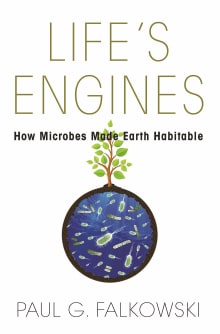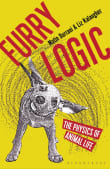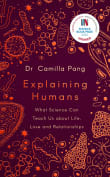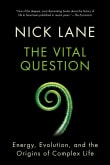Life's Engines

Book description
For almost four billion years, microbes had the primordial oceans all to themselves. The stewards of Earth, these organisms transformed the chemistry of our planet to make it habitable for plants, animals, and us. Life's Engines takes readers deep into the microscopic world to explore how these marvelous creatures made…
Why read it?
3 authors picked Life's Engines as one of their favorite books. Why do they recommend it?

As a microbial ecologist, I didn’t need to be convinced that microbes make all life on Earth possible. I knew that Falkowski, a preeminent biological oceanographer, would be a trustworthy guide in the microbial world. What makes this book so much fun to read is how Falkowski mixes science with snippets of history, both his own and of early scientists.
Yet, the science is the main story here and is fascinating. Microbes, specifically cyanobacteria, are the engines that first put oxygen in the atmosphere around 2.4 billion years ago, which set the stage for the evolution of more complicated lifeforms,…
From David's list on microbes and the environment.

For me, the most enthralling revelation of recent biology has been that living cells really do contain engines: protein structures more complex than a petrol engine, with moving parts. One is even a nano electric motor with a rotor. This is known in exquisite detail thanks to the miracles of modern imaging and gene and protein sequencing. This nano machinery developed billions of years ago in bacteria and is little changed today in all living cells. Falkowski updates Margulis’s work from 20 years earlier with these modern marvels. These nano engines run photosynthesis in bacteria and plants and give all…
From Peter's list on the deep history of life on earth.

On a riverbank in the tiny town of Rifle, Colorado, is an unassuming plot of land that most people would pass without a second thought. For me, though, that spot is like a temple — because it is there that researchers discovered 28 entirely new phyla of microorganisms. (By way of comparison, the entire kingdom Animalia contains approximately 31 phyla.) I wouldn’t have known to appreciate this discovery, though, if I hadn’t first read Paul Falkowski’s wonderful book about microbes. Like most folks, I’d known that all life on our planet stemmed from the creatures so small we cannot see…
From Matthew's list on for feeling awestruck about the world.
Want books like Life's Engines?
Our community of 12,000+ authors has personally recommended 100 books like Life's Engines.



























